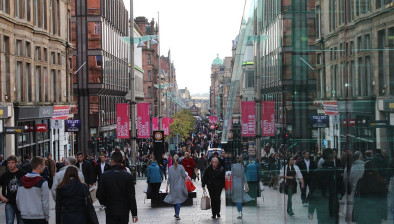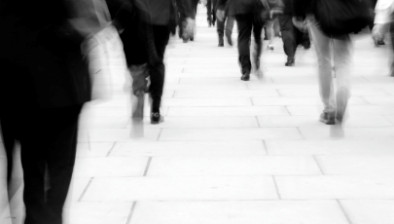Pandemic increases death rates for people in deprived areas

The death rate of people living in Scotland’s most deprived areas was almost double that of those in the least deprived areas last year, a new report from National Records of Scotland (NRS) has highlighted.
Data from ‘Scotland’s Population 2020 – The Registrar General’s Annual Review of Demographic Trends’ shows that the death rate for all causes of death in the most deprived areas of Scotland was 1.9 times the rate in the least deprived areas. Part of this is due to underlying health conditions such as diabetes, obesity and lung disease being more common in more deprived areas.
The rates for drug-related deaths (18.4 times as large), alcohol-specific deaths (4.3 times as large), suicides (3.0 times as large), and COVID-19 deaths (2.4 times as large) were all notably higher in the most deprived areas.
Pete Whitehouse, director of statistical services at NRS, said: “Our report on Scotland’s Population in 2020 shows that the death rate from all causes in the most deprived areas of Scotland is nearly double the death rate of people in our least deprived areas. The difference in death rates is higher for drug-related deaths, alcohol-specific deaths, suicides, and COVID-19.
“People in more deprived areas can also expect far fewer years in good health. There is a 20+ year gap in healthy life expectancy between people in the least and most deprived areas.
“This Annual Review has been produced since 1855. This year we have restructured it and presented datasets by a number of important themes, aiming to make it more accessible to a wider range of people.”
Age Scotland has called for urgent action to tackle health inequalities after the report shows Covid-19 has exacerbated a staggering gap in healthy life expectancy.
The charity for older people is concerned that the pandemic has exacerbated the already unacceptable gap in healthy life expectancy. It is warning that this could increase in coming years, due to the negative impact of lockdown restrictions on people’s lifestyles and pause on routine healthcare services.
The report also found there was a significant disparity in Covid-19 death rates between ethnic groups. The deaths of people of South Asian origin were almost twice as likely to involve the virus as those of White Scottish origin.
Brian Sloan, chief executive of Age Scotland, said: “It is completely unacceptable that there is a quarter century gap in healthy life expectancy between men living in Scotland’s most and least deprived areas. The situation is almost as bad for women, with a gap of more than 20 years.
“We warned earlier this year that the pandemic could have a serious impact on health inequalities. Now it seems that our worst fears have been realised, with Covid-19 only exacerbating this situation.
“It’s shocking to see that those in less well-off areas were 2.4 times more likely to die from the virus, partly due to a higher incidence of risk factors such as diabetes, obesity and lung disease.
“The stark disparity between ethnic groups is also extremely worrying, with people of South Asian origin almost twice as likely to have Covid-19 listed as a cause of death than those of White Scottish origin.
“We’re also concerned that the negative impact of Covid-19 restrictions on people’s lifestyles and the pause on routine health services could impact health for years to come. As we look to the recovery, we urgently need to look at preventing ill health in the first instance and address the impact of poverty.
“Scotland’s population set to age rapidly over the next few years. But unless we take urgent action now, people are likely to spend more and more years of their lives in poor health, putting additional strain on our overstretched NHS and social care systems. If we really want Scotland to be the best place in the world to get older, then tackling these health inequalities must be a top priority.”







